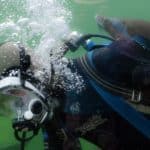
Can You Listen to Music While Scuba Diving?
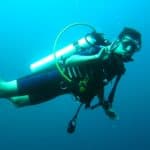
What to Do During Scuba Diving to Stay Safe

You Should NOT Do These Things Before Scuba Diving

Foods You Should Eat or Avoid Before Scuba Diving
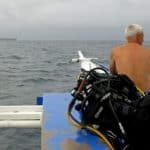
Maximum Age for Scuba Diving – Am I Too Old?
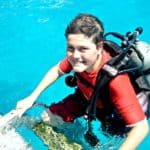
What is the Minimum Age for Scuba Diving Courses?
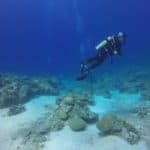
What is Decompression Diving? Do I Need to Learn It?
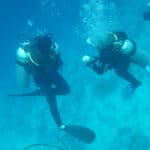
How to Become a Rescue Diver
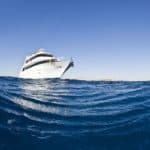
How to Get Started with Liveaboard Diving
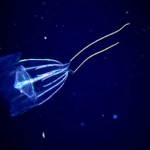
How to Get Started with Blackwater Diving
If you are looking to get started with scuba diving, you should first try out snorkeling. Snorkeling is a fun and cheap way to the ocean without much investment. Just rent a snorkel, mask, and fins and you can start snorkeling without any certifications.
Scuba diving, on the other hand, requires much more equipment, knowledge, and a 4-day certification course. Beginner divers are limited to shallow depths of just 16-32 feet below sea level, but with more practice and training can reach greater depths.
Once you have more certifications, you will be able to go to more places, and of course, attempt to reach deeper depths when you dive. Generally speaking, the further down you go, the more the aquatic flora and fauna changes. Scuba diving is best done with a group, because any equipment malfunctions or accidents are deadly without anyone watching your back.

